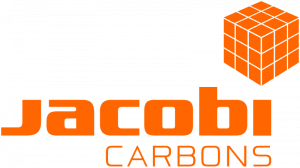CleanTech innovations drive sustainability through reduced GWP
— Rae Marie Harber, Jacobi Group business development dir. of the Americas
COLUMBUS, OH, UNITED STATES, September 4, 2024 /EINPresswire.com/ — Part of its ‘GO GREEN’ initiative launched at the start of 2024, Jacobi Group is expanding investments in the sustainable production of coconut shell charcoal, launching research and development efforts on an improved proprietary charring process while also expanding reactivation facilities in Europe. The ‘CleanTech’ technology will have environmental benefits and improve sustainability processes for its charcoal suppliers, thus improving the sustainability of the entire supply chain.
“We are finding more and more that customers’ commitment and understanding of the importance around environmental issues and sustainability are on the forefront of people’s minds when they make decisions on what type of media to use,” said Rae Marie Harber, Jacobi Group business development director of the Americas. “There is a noticeable shift in the industry to find new innovations that help serve the many different applications in the most sustainable way. It’s an exciting time to be in the business and will ultimately benefit all in the future.”
A company-wide effort to improve overall sustainability, ‘GO GREEN’ is a long-term sustainability journey that aims to replace products based on coal and other fossil fuels with alternative renewable raw materials. The aim of the initiative is to develop a sustainability-first mindset across the board, which will then translate into tangible improvements in lowering global warming potential (GWP) throughout the business, minimizing environmental impact. It involves all stakeholders, from production plants to those working in office-based roles and even the highest levels of management.
Understanding the GWP of reactivated activated carbon in comparison to virgin activated carbon is drastically lower, investments in reactivation are another significant factor in the ‘GO GREEN’ initiative. Jacobi has vastly expanded its reactivation facilities in Europe, helping to make it easier for customers to send back spent media and recycle it, rather than simply using virgin carbon repeatedly.
Long term, Jacobi has a goal to become the most sustainable supplier of activated carbon and ion exchange resins, replacing out-sourced fossil-based products within 10 years as much as possible. Jacobi’s most sustainable products are now marked with a stamp, to signify to customers that this is the best choice for the environment and help them to make the most sustainable choice quickly and easily.
Jim Knepper, Jacobi Group president of the Americas concludes, “While all of us at Jacobi fully believe in our sustainability journey and the reasons for it, make no mistake – we will not succeed without true partnerships with customers, suppliers, and technology partners. We invite all to join our journey.”
For more information on Jacobi Groups’ sustainable solutions visit their website, www.jacobi.net or contact your local representative.
# # #
About Jacobi Carbons
Established in 1916, Jacobi Carbons is a global supplier of activated carbon, ion exchange, and filter service solutions for a variety of applications, including municipal, industrial water treatment and air treatment. The company is on a mission to become the most sustainable supplier in the industry, currently the world’s largest manufacturer of coconut shell-based activated carbon — a WQA sustainable certified product under WQA / ASPE / ANSI Standard S-802 in 2015. Jacobi is headquartered in Sweden and has around 2400 employees spread across 20 manufacturing and processing facilities and two reactivation plants in Europe. Visit www.Jacobi.net to learn more.
Tori Andrews
Boeh Agency
+1 404-406-6607
email us here
Legal Disclaimer:
EIN Presswire provides this news content “as is” without warranty of any kind. We do not accept any responsibility or liability
for the accuracy, content, images, videos, licenses, completeness, legality, or reliability of the information contained in this
article. If you have any complaints or copyright issues related to this article, kindly contact the author above.
![]()






